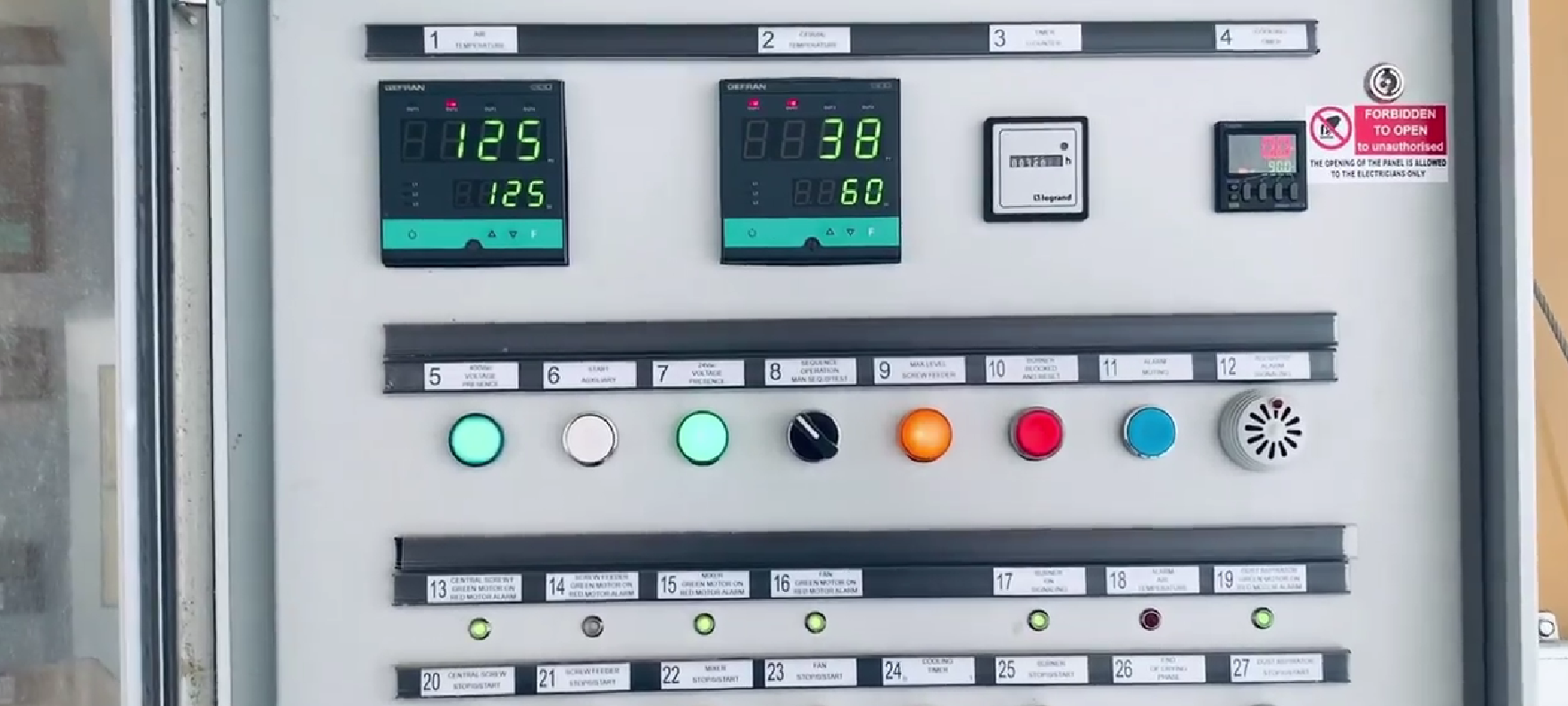Small farms can greatly benefit from the use of a grain dryer, if this is suitable for the company in which it is used. Therefore, in the investment evaluation phase, you have to pay attention to which type of grain dryer you choose. On which aspects you should base your choice? And how you can understand which is the best grain dryer for a small farm? Mecmar, specialist in the construction of grain dryers, gives you an answer in this article.
How to choose the right dryer?
Let’s start by defining more exactly what we mean by “small farm”: there are many definitions given over time, which vary greatly, especially depending on the geographical area of reference. For convenience, in this article we will refer to realities that have drying needs up to 1,000 tons of product per season.
Now let’s see what aspects you should consider to choose the best grain dryer for small farms: type of grain dryer, size of the dryer, capacity of the dryer.
Type of grain dryer
A first fundamental distinction is the one between discontinuous mobile grain dryers and tower dryers.
In general, tower dryers are more suitable for medium or large farms, with drying needs of 13-30 tons per hour, mainly due to their long times and the start-up and shutdown costs they require. The discontinuous cycle mobile dryers, on the other hand, allow to dry single batches of product, even for different cereals, quickly and effectively. Their mobility gives the advantage of being transportable from one place to another and the possibility of using them also to dry batches of different types of cereals, without them being mixed.
Dimensions and capacity of the dryer
Among discontinuous mobile dryers, it is necessary to select the most suitable size and capacity for the daily volume of product to dry. This is determined based on the type of cereal to be dried, the seasonal quantities and the purpose of the post-drying treatment. The table below indicates typical percentages of moisture removed per hour of drying:
|
Moisture removed per hour of drying |
|
|
Corn for feed |
4 – 5%/h |
|
Rice |
1 – 1,3%/h |
|
Wheat for feed |
4%/h |
|
Soybeans |
2,5%/h |
|
Rapeseed |
2%/h |
As an indication, it can be considered that to dry a batch of corn from 25% to 15% of humidity it is necessary to keep the burner on for about 2-2.5 hours. The specific weight also affects the choice of dimensions: a dryer with 30m3 capacity can contain 22.5 tons of corn (if the specific weight is 0.75 tons/m3) or 18 tons of rice (if the specific weight is 0.6 ton/m3). Known how much cereal must be dried per season (for example, 1000 tons) and how many days are available to dry (for example, 10 days) and the humidity to be removed from the cereal, we can calculate the daily production required (1000/10 = 100 ton). With this information, it is possible to define the most appropriate dimensions of the discontinuous dryer necessary for your needs.
.png)
Particularly compact grain dryers with a capacity of about 6 tons and small dimensions can be chosen for drying volumes of cereal up to 80 tons per day. For greater needs, meaning more than 100 tons of dried product per day (and up to about 130 tons), solutions with a capacity of 10 tons, with consequently larger dimensions, are more suitable. Furthermore, the best grain dryer for a small farm that still has high requirements (up to about 200 tons of product to be dried), will instead have to focus on medium-sized dryers, with a capacity of about 15 tons.
Drive and heating system
Once the most appropriate capacity has been defined according to the needs, it remains to define the type of drive (electric, tractor or dual drive, both electric and tractor) and the drying system (direct or indirect fire), with gas fuel or diesel.
What solutions? Mecmar mobile dryers
Mecmar has forty years of experience in the design and development of solutions for drying cereals. With these skills, it also offers mobile dryers for small farms, such as:
- NANO 6/47 T2 mobile dryer: extremely compact in size, it has been designed to give maximum efficiency with minimum bulk. It has a nominal daily productivity of dried and cooled corn from 25 to 14% humidity equal to 36 tons.
- CPT 10/77 T mobile dryer: combines compactness and portability, guaranteeing almost 60 tons of dried product (from 25 to 14%) per day. With a capacity of more than 10 tons, it is a middle ground suitable for most small farms.
- FSN 15/138 T mobile dryer: suitable for small growing farms, it ensures up to 96 tons of dried and cooled corn from 25 to 14% humidity per day and has a capacity of almost 15 tons.
.jpg)
Conclusion
The best grain dryer for small farms is undoubtedly a discontinuous cycle mobile dryer, which can guarantee a small footprint and can be moved and repositioned easily. To understand which specific model to choose, you must also consider the size and capacity of the machine, to be related to your daily productivity needs. Among the Mecmar solutions, the most recommended grain dryers for small farms are the NANO 6/47 T2, the CPT 10/77 T and the FSN 15/138 T.
Mecmar offers customized drying solutions based on specific customer requirements: for more information and to find out which grain dryer is best suited for your company, do not hesitate to contact us!








